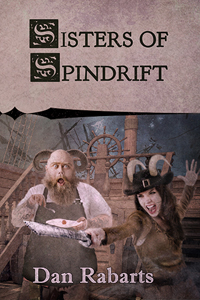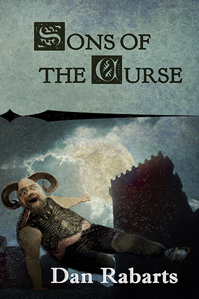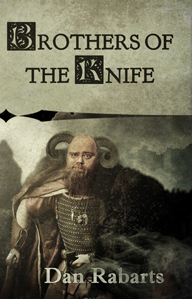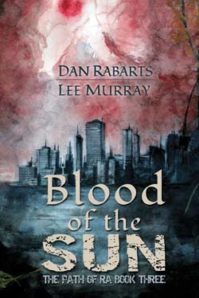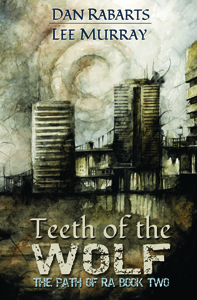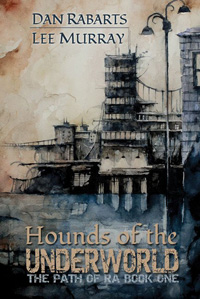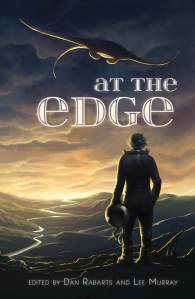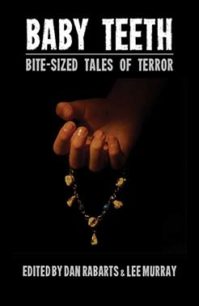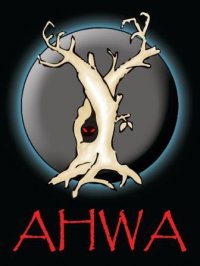Originally published on the midnightechomagazine.com.
Dan Rabarts has been writing since he was big enough to hide a torch under the blankets at night and scribble stories in the back of his maths homework book. Because who needs maths, right?
His SF/F/H fiction can be found in ASIM, Aurealis, Beneath Ceaseless Skies, and in anthologies including Bloodstones, When the Hero Comes Home 2, and Regeneration. He has been a finalist for New Zealand’s SJV Awards multiple times.
Most recently, he has co-edited a chilling anthology of flash-length horror tales titled Baby Teeth – Bite-sized Tales of Terror (Paper Road Press, 2013).
Dan Rabarts’ Children of the Tide was awarded 1st prize in the AHWA/Melbourne Zombie Convention 2013 Short Story Competition.
MIDNIGHT ECHO: Where did you get the idea for your story?
DAN RABARTS: Like most of my stories, Children of the Tide began as a simple free-writing exercise, this one with a post-apocalyptic theme in mind. I had written the first few pages (pen on paper) establishing the main character and the house when another writer friend of mine pointed me towards the AHWA/Melbourne Zombie Con short story competition. I realised that with a few changes (replacing the Lovecraftian horrors slurping out of the sea with zombies) I might have something to work with. Everything else flowed from there – the themes of survival, of the inhumanity of humanity, of the ties of family, and of how no matter how brave we like to think we are, that everyone has a breaking point.
But I have to admit that it took me a very long time to get those last couple hundred words down on the page. I knew what had to happen, but that didn’t make writing it out any easier. Subconsciously I think I was trying to find a way out for my characters, when there really wasn’t any way out to be had.
Aside from that, I’ve always been drawn to write about my own backyard, the hills and bush and paddocks of New Zealand. We don’t see enough post-apocalyptic fiction set in our dark backblocks, so this seemed like a good opportunity to explore something other than the common zombie PA tropes of abandoned shopping malls, freeways, and junk yards. But as for the fear at the core of the story? Well, aside from the creeping dread of catastrophic climate change, the fear in this story comes from being a parent with two small children. I think that if you’re not worried about how things are going to turn out for your kids in the next few hours, or the next few years, you’re not doing it right. My kids are a constant source of both joy and terror for me, and that’s something that keeps cropping up in my writing time and time again.
MIDNIGHT ECHO: What are your favourite zombie stories/movies?
DAN: This is going to sound like some sort of sacrilege, but zombies aren’t my favourite genre, mainly because it’s been so long since anyone did anything truly original with them. I enjoyed Shaun of the Dead, 28 Days Later, Pirates of the Caribbean, and I Am Legend, but I’m not a big Living Dead fanboy. Although I have to admit, I am currently very much enjoying Paul Mannering’s Australian zombie apocalypse novel Tankbread (Permuted Press, 2013).
MIDNIGHT ECHO: It seems like brains are the flavour of the month. Why do you think the living dead are so popular right now?
DAN: Because vampires suck? (Ba-dum TISH)
But seriously, we exist in a culture where our most prevalent fears have a tendency to surface wearing different masks in our mass media, from the Godzillas of the Cold War representing our collective dread of nuclear annihilation, to the dead-eyed shambling masses of The Walking Dead representing our present-day fear of becoming dead-eyed, shambling masses beholden to gross consumerism and corporate machination. What’s interesting about zombies is more what they represent about humanity as a growing concern than the mechanics of the action around them. Zombie stories are not so much about zombies – or the variations on the theme about what caused the apocalypse or how you have to kill them – as they are about how people treat each other when dealing with a faceless calamity that cannot be reasoned away. Those times when power shifts, and people become casualties, and collateral, and currency.
I think this is something that people can relate to, particularly in an age of growing uncertainty around global financial stability, spiralling pollution and climate change, imperialist and sectarian sabre-rattling, and a myriad of other factors which are beyond the control of any given individual and which may in their own way contribute to a world not altogether unlike some of the PA fictions we’ve enjoyed on screen and in books for a long time. The zombie trope reflects this shift in our society over the past fifty years towards one where the individual is utterly distinct and self-determining outside of the social group in ways that we never were before, yet simultaneously we have become increasingly isolated from those around us, who in turn become the faceless masses of the quiet apocalypse. People feel this shift in their bones, I think, maybe more than they can relate to, say, how a thousand-year-old corpse who has forgotten how to feel, much less to love, wants you to be his/her eternal sex slave (until s/he gets bored of you).
The zombie genre taps into many of the nascent fears we have for the future which we cannot change – not directly, at least. As people, we turn to the zombie because we like to watch our fears play out and find resolution in safe places, like behind the glass of a TV screen or trapped on the pages of a book, so they don’t take up so much room in our heads, or in our nightmares. So that we can sleep easy at night, because at least it won’t ever really get that bad. Will it?
MIDNIGHT ECHO: If you had to fight off a horde of zombies, what weapon/s would you choose and why?
DAN: I like the idea of a high-pressure water hose, just because it would tear rotten limbs straight off and push them AWAY from me, in case they’re those creepy zombie-arms where the hands keep coming even after they’ve been dismembered. Unfortunately this tool relies too heavily on working parts and intact infrastructure, and is not particularly portable (unless it’s mounted on a solar-powered fire-engine, but that wouldn’t really make for a speedy getaway vehicle). But assuming no such thing was readily on hand, I’d probably settle for a good old-fashioned two-stroke brush-cutter, with heavy blades (and all the appropriate personal safety gear, of course) and a 36-volt battery-operated reciprocating saw on standby for anything that got too close. And a solar charger, in the unlikely event that I survive and have to do it all again tomorrow.
MIDNIGHT ECHO: Aside from zombie stories, what do you like to write?
DAN: I write a fair amount of steampunk as a way to feed my desire to write dieselpunk, which civilisation has yet to embrace with the sort of fervour I’d like you all to. (Take note, civilisation: Dieselpunk!) I also tend to write science fiction with a horrific flavour, fantasy with a dark edge, and the odd bit of black humour. Aside from short stories, I have a number of completed dark fantasy novels which I’m currently shopping around, a few other novel-length projects on the go covering the gamut of Military SF Horror to Cyberpunk to Gothic Apocalyptopunk, and I’m co-writing a novella series which is part CSI, part Twilight Zone, and part At the Mountains of Madness. But mostly I like whatever I write to come with a punch in the guts, to hit hard and to hurt, just a little bit, and to leave you wanting more.
Oh, and shopping lists. I do like writing shopping lists.
